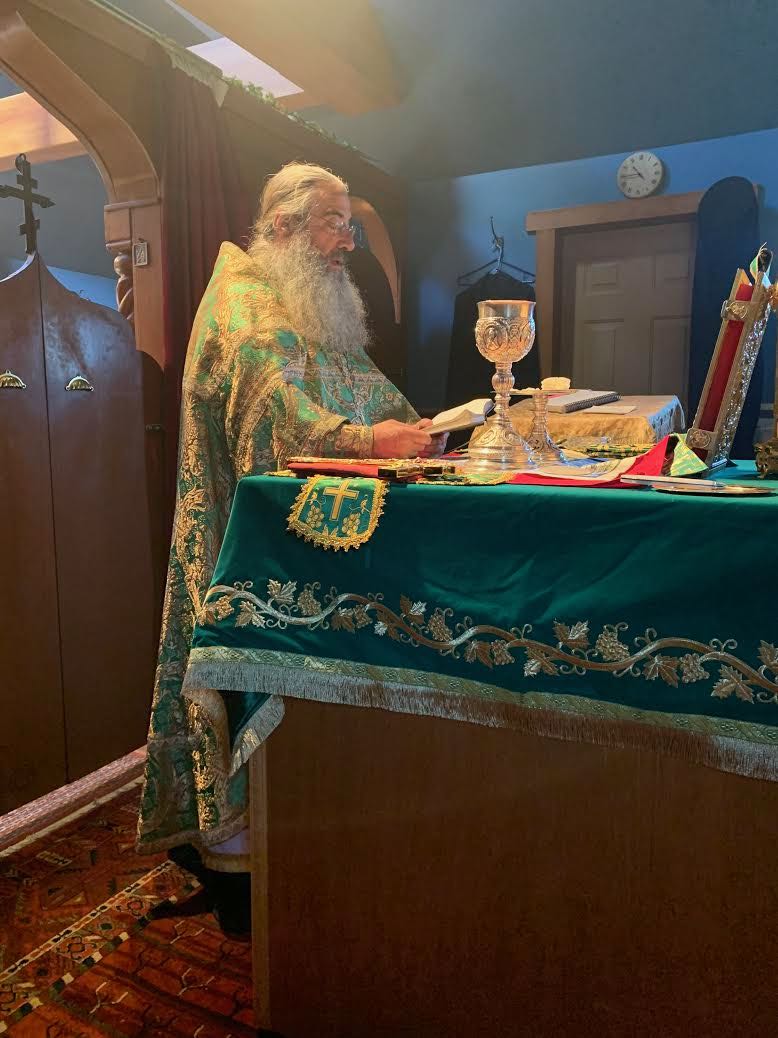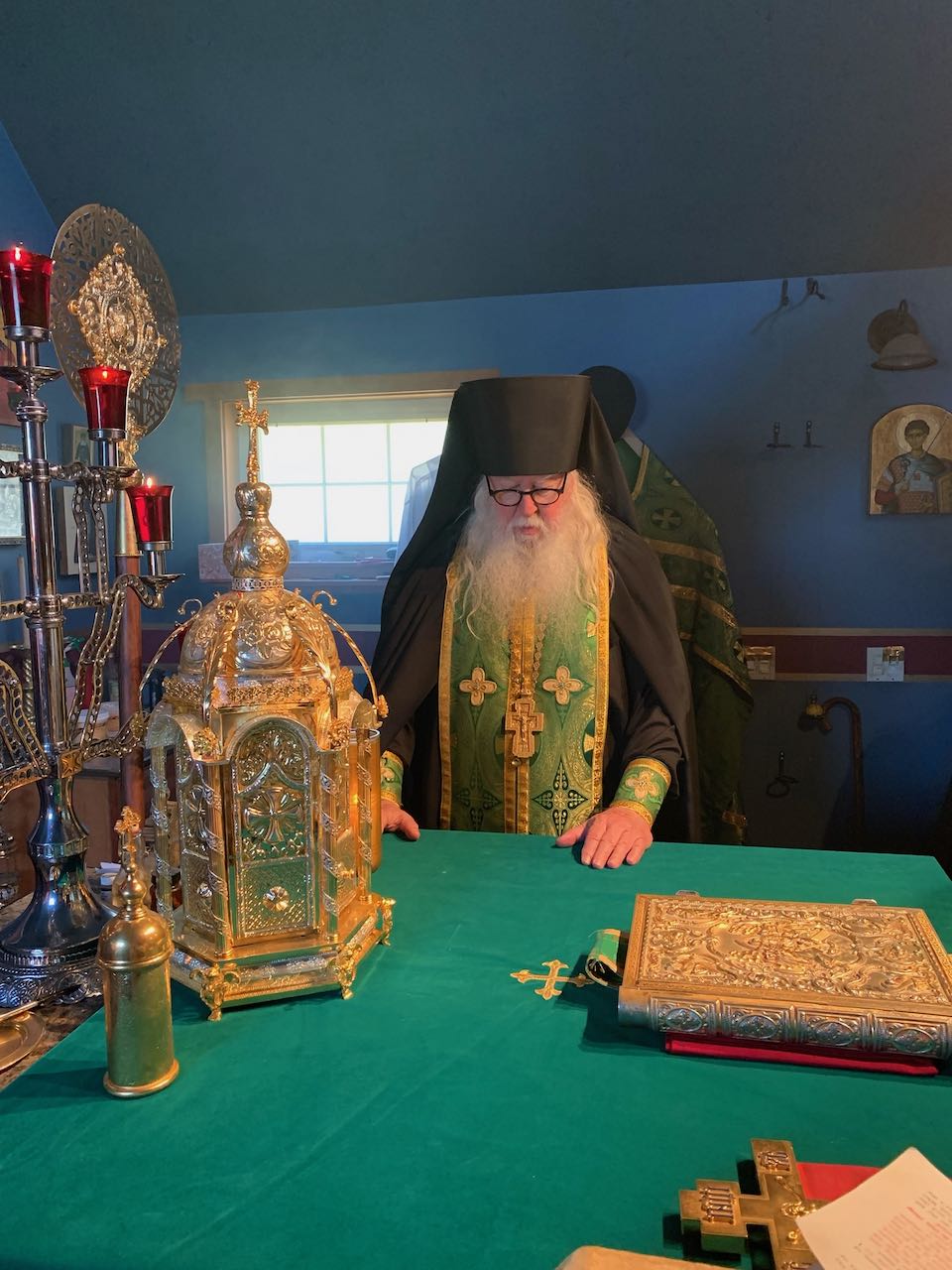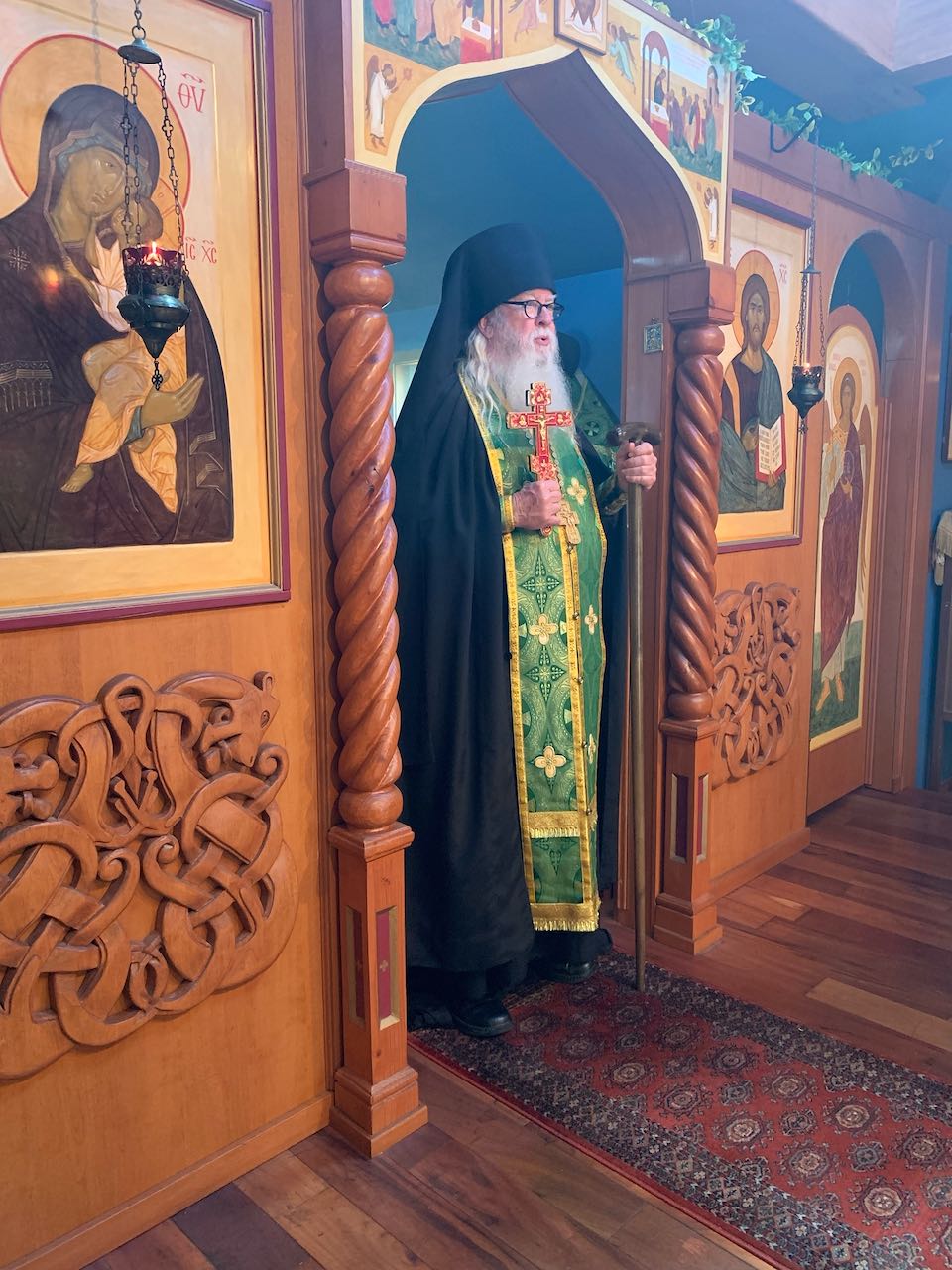Entering into the Silence
All Orthodox Christians are aware of the importance of prayer, fasting, and almsgiving, in our journey to God. These three practices are at the heart of the Great Lenten Fast for all practicing Orthodox Christians, but we all should make these the heart of our everyday life throughout the year.
Prayer is our way of communicating with God on a daily basis, and fasting days (Wednesday and Friday) are called for throughout the Church Year. As Christians, we are also obligated to give alms to the poor, as demonstrated throughout the New Testament. Yet we often overlook the great spiritual practice of entering into the Silence as a way to discover ourselves, and deepen our experience with God’s presence.
Today’s technological advancements have introduced noise into our lives in ways unthinkable to the ancients. Not more than a hundred years ago, most families found silence as an everyday experience, for when the sun went down, families nestled into warm corners of their parlors, and their kitchens, often reading books, or simply watching a crackling fire. Along with this quieting down of the day, silence was part of every evening. Orthodox families were especially cognisant of the need to spend quiet time on the eve of the Sunday Liturgy, as well as great feasts of the Church, knowing that this silence served as a preparation time for receiving Christ’s Body and Blood, during the celebration of the upcoming Liturgy.
Keeping silence by turning off radios and television sets, muting iPods, and turning off computers, is a splendid way of allowing everyone in the family to experience the silence that allows us to listen for the voice of God, speaking in our hearts. Refraining from conversation, music, and all forms of entertainment for just an hour or two, helps open us to an experience of God that has become foreign to most modern Americans.
Silence is the means by which we may access and deepen our relationship with God, and develop self-knowledge. Silence allows us to live more harmoniously in our world, and actually listen for the voice of God speaking to our hearts. Saint Theophilus, Patriarch of Alexandria, placed the virtue of silence on par with the faith itself in a synodal letter from AD 400. “Monks—if they wish to be what they are called—will love silence and the catholic faith, for nothing at all is more important than these two things.” This invitation into the silence is not for monks only.
With love in Christ,
Abbot Tryphon
Monday June 21, 2021 / June 8, 2021
Day Of the Holy Spirit. Tone seven.
Fast-free Week. Fast-free
“Tupichevsk” and “Cyprus” Icon of the Most Holy Theotokos (movable holiday on the Day Of the Holy Spirit).
Translation of the relics of Great-martyr Theodore Stratelates (319).
St. Theodore, bishop of Rostov and Suzdal (1023).
Finding of the relics (1501) of Sts. Basil (1249) and Constantine (1257), princes of Yaroslavl.
Venerable Ephraim, patriarch of Antioch (546).
Venerable Zosimas, monk, of Phoenicia (Syria) (6th c.).
“Yaroslavl” (13th c.) and “Uriupinsk” (1827) Icons of the Mother of God.
New Martyr Theophanes at Constantinople (1559) (Greek).
Venerable Atre (Athre) of Nitria (Egypt).
Venerable Naucratius, abbot of the Studion (848).
Venerable Theophilus of Luga and Omutch (1412), disciple of St. Arsenius of Konevits (Valaam).
Martyrs Nicander and Marcian at Dorostulum in Moesia (303) (Romania).
St. Medardus, bishop of Noyon (560) (Neth.).
Translation of the relics of Hieromartyr Alphege, abbot of Canterbury.
Martyr Callopia (Greek).
Venerable Melania the Elder, of Palladius’ Lausiac History (Greek).
Martyr Nicander (Greek).
Martyr Mark (Greek).
New Hieromartyrs Barlaam (1942) and his brother Herman (1937) (Riaschentsov) (1937).
St. Paul the Confessor, of Kaiuma in Constantinople (766).
Holy Hieromartyr Tevdore of Kvelta (1609) (Georgia).
Synaxis of the Church of the Cross at Mtskheta, Georgia (Georgia).
Venerable Naucratius, brother of St. Basil the Great (4th c.).
The Scripture Readings
Ephesians 5:8-19
Walk in Light
8 For you were once darkness, but now you are light in the Lord. Walk as children of light 9 (for the fruit of the Spirit is in all goodness, righteousness, and truth), 10 finding out what is acceptable to the Lord. 11 And have no fellowship with the unfruitful works of darkness, but rather expose them. 12 For it is shameful even to speak of those things which are done by them in secret. 13 But all things that are exposed are made manifest by the light, for whatever makes manifest is light. 14 Therefore He says:
“Awake, you who sleep,
Arise from the dead,
And Christ will give you light.”
Walk in Wisdom
15 See then that you walk circumspectly, not as fools but as wise, 16 redeeming the time, because the days are evil.
17 Therefore do not be unwise, but understand what the will of the Lord is. 18 And do not be drunk with wine, in which is dissipation; but be filled with the Spirit, 19 speaking to one another in psalms and hymns and spiritual songs, singing and making melody in your heart to the Lord,
Matthew 18:10-20
The Parable of the Lost Sheep
10 “Take heed that you do not despise one of these little ones, for I say to you that in heaven their angels always see the face of My Father who is in heaven. 11 For the Son of Man has come to save that which was lost.
12 “What do you think? If a man has a hundred sheep, and one of them goes astray, does he not leave the ninety-nine and go to the mountains to seek the one that is straying?13 And if he should find it, assuredly, I say to you, he rejoices more over that sheep than over the ninety-nine that did not go astray. 14 Even so it is not the will of your Father who is in heaven that one of these little ones should perish.
Dealing with a Sinning Brother
15 “Moreover if your brother sins against you, go and tell him his fault between you and him alone. If he hears you, you have gained your brother. 16 But if he will not hear, take with you one or two more, that ‘by the mouth of two or three witnesses every word may be established.’ 17 And if he refuses to hear them, tell it to the church. But if he refuses even to hear the church, let him be to you like a heathen and a tax collector.
18 “Assuredly, I say to you, whatever you bind on earth will be bound in heaven, and whatever you loose on earth will be loosed in heaven.
19 “Again I say to you that if two of you agree on earth concerning anything that they ask, it will be done for them by My Father in heaven. 20 For where two or three are gathered together in My name, I am there in the midst of them.”




3 AM to 4 AM became my time of silence awhile back. I would wake up in physical pain. Rather than complain, I started to pray the Jesus Prayer using a beautiful prayer rope that my late wife made. Great benefit
How beautiful Michael, thank you for sharing. I used to wake at 4 am for that purpose and need to do so again. Setting my alarm now, thanks to your prompt dear brother in Christ. 🕊 Nicole
When the subject of silence comes up, my mind goes back to when God said, “Be still and know that I am God.” He must have said that knowing we were going to become very noisy creatures – both externally and internally. Silence is like a cleansing of our thoughts and also makes us more aware of nature which noise always seems to cover up!
Thankyou! (I remember too an old song “Silence is golden….”
God bless!
I like to wake up at 4 AM and do the Midnight Office. In a monastic setting this short service starts the morning service before Orthros at about 3 AM. If I go to a Divine Liturgy on a weekday they usually start with Midnight Office, Orthros, and the Hours before the Divine Liturgy itself; the services start at 3:15 AM and the Divine Liturgy finishes at about 8:30 AM. Quite a regimen that, in my old age am unable to go that early very often. In the past, I participated in the 40 straight Divine Liturgy services that Gerondissa Markella required of new priests, but I was younger then.